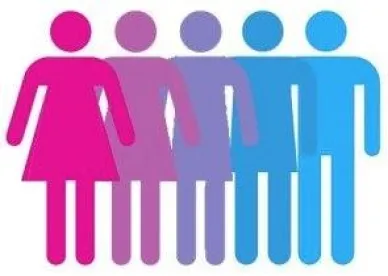On December 21, 2015, the New York City Commission on Human Rights issued new enforcement guidelines regarding discrimination on the basis of gender identity or expression. While the City Council added transgender protections to the New York City Human Rights Law (“NYCHRL”) in 2002, the Commission recently issued these detailed guidelines on what constitutes discrimination on the basis of gender identity or expression.
The guidelines reinforce the notion that it is unlawful to fire, refuse to hire or promote, or set different terms and conditions of employment because of an employee’s gender, including an employee’s status as a transgender person. The protections also extend to discrimination in public accommodations and housing. In the employment context, the guidelines specify new requirements for employers to follow in order to avoid liability for discrimination based on gender identity or expression, and provide several examples of prohibited conduct.
For example, the guidelines require an employer to use an individual’s preferred name, pronoun, and title. However, it is not a violation of the law for an employer to ask an individual for their preferred pronoun or name. Also, individuals must be permitted to use single-sex facilities, such as bathrooms and locker rooms, consistent with their gender identity or expression. Moreover, employer provided benefit plans must cover transgender care, including, for example, hormone replacement therapy, voice training, or surgery.
The guidelines also identify some forms of prohibited conduct by employers. For example, employers may not require dress codes or uniforms, or apply grooming or appearance standards, that impose different requirements for individuals based sex or gender. That said, the guidelines do allow employers to provide different options to employees regarding dress codes. For example, an employer may offer two uniform shirt options, one that is more typical of a woman’s blouse and another that is more typical of a man’s button down shirt; but an employee must be able to choose to wear whichever shirt they want.
The NYCHRL also prohibits sex stereotyping, and as a result employers may not require an employee to conform to stereotypical norms of masculinity or femininity. This includes enforcing a policy prohibiting men from wearing jewelry or make-up to work, or attributing a particular sexual orientation to individuals who do not conform to sex stereotypes. The NYCHRL also prohibits employers from considering gender when evaluating requests for accommodations. For example, an employer must treat requests for medical leave related to an individual’s gender identity in the same manner as all other requests for medical leave. Finally, the guidelines make clear that the NYCHRL prohibits harassment because of gender identity or expression, and prohibits retaliation against employees for opposing discrimination or requesting a reasonable accommodation for a disability based on gender identity or expression.
The guidelines impose civil penalties of up to $125,000 for violations, and up to $250,000 for willful violations. In determining the amount of a civil penalty, the Commission will take into account the severity of the violation, any history of prior violations, the employer’s size and revenue, and the employer’s knowledge of the NYCHRL.
In light of these new guidelines, employers should review their policies and procedures, as well as their training materials, to ensure that they are in compliance.




 />i
/>i

